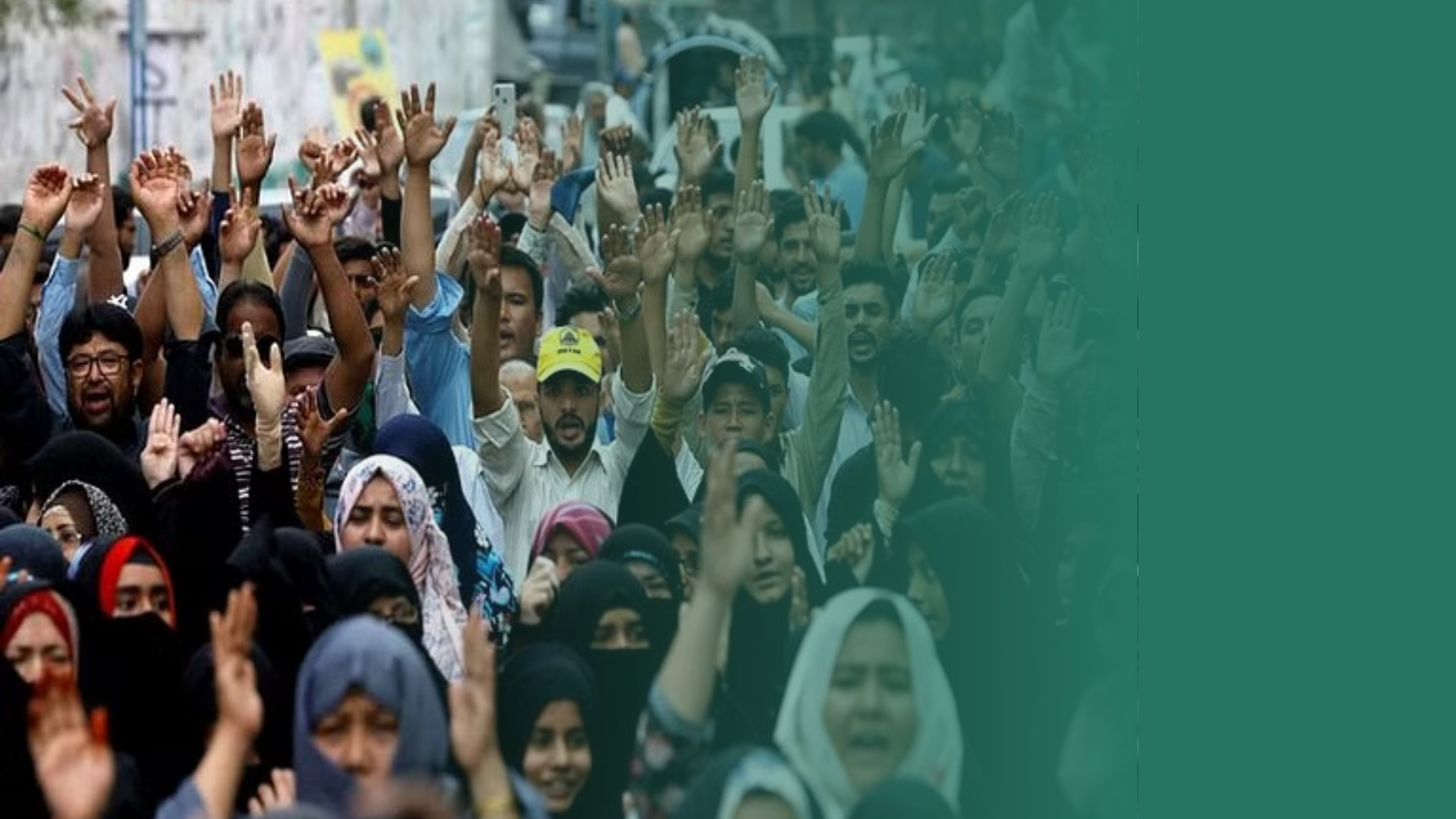The Asian Forum for Human Rights and Development (FORUM-ASIA) is deeply concerned over the human rights violations in Gwadar City in Pakistan’s Balochistan province, where peaceful protests were met with violence and widespread arrests.
FORUM-ASIA urges the Government of Pakistan to uphold the fundamental rights and freedoms of the Baloch people.
The plight of the Balochs
Despite being Pakistan’s largest and most resource-rich province, Balochistan remains the poorest. It has been embroiled in an insurgency since the early 2000s.
The ethnic Baloch community has long faced political disenfranchisement and socioeconomic marginalisation.
Baloch men, in particular, have faced systematic torture, abductions, and enforced disappearances. Thousands have been reported missing in the past two decades, fuelling a demand for justice, retribution and accountability in the region.
The Balochs have consistently demanded the Government of Pakistan to respect their civil and political rights. They have repeatedly called for an end to human rights violations, including enforced disappearances and extrajudicial killings.
Their financial exclusion further heightens the vulnerability of the Balochs. In recent years, the multi-billion dollar China-Pakistan Economic Corridor has been accused of destroying the economy, livelihood, and ecology of Balochistan. Such projects–often undertaken without free, prior and informed consent of affected communities and environmental and social impact assessments–not only worsen the economic marginalisation of ethnic Balochs but also exacerbate environmental risks, as seen in the recent heavy flooding in the region.
Balochs have organised marches, sit-ins, and protests for years to address these issues. While earlier protests were led mostly by men, Baloch women have also taken on leadership roles in these peaceful protests in recent years. Despite their efforts, their pleas have been repeatedly ignored.
Peaceful protests met with violence
On 28 July 2024, the Baloch Yakjehti Committee (BYC) called for a “Baloch Rajee Muchi” (Baloch National Gathering) to protest against ongoing human rights violations and to advocate for the rights of ethnic Balochs.
The BYC, a civil rights movement, opposes enforced disappearances and extrajudicial killings in the region. The BYC is also a staunch critic of Chinese investments, citing its lack of meaningful engagement with the Baloch community.
In the lead-up to the gathering, major highways to Gwadar were blocked. The district administration imposed Section 144 of the Code of Criminal Procedure– which bans all public gatherings, rallies, sit-ins, and protests–in Quetta.
On 27 July 2024, paramilitary forces opened fire on buses heading to Gwadar, injuring at least 14 people in Mastung. The crackdown intensified on 28 July, with security forces killing at least three protesters in Gwadar and injuring dozens more. On 29 July, police used tear gas to disperse demonstrators. On 30 July, security forces reportedly fired on protesters on the outskirts of Gwadar.
A curfew-like situation was enforced across Balochistan, with security forces taking control of every city. Gwadar was under a military siege, with locals barred from entering or leaving the city. Videos surfaced showing security forces opening direct fire, and the bodies of the deceased were not returned to their families.
Human rights defenders–including protest leaders like Sammi Deen Baloch, Sibghatullah Abdul Haq, Dr Sabiha Baloch, Hafeez Baloch, Seema Baloch, and Mahzaib Baloch–alongside many other protesters were detained. There are also reports of threats against Mahrang Baloch and the BYC leadership who are allegedly marked as a target for elimination by the authorities.
On 27 July 2024, the government shut down internet and mobile networks across Balochistan, isolating the province from the rest of the world. This was lifted on the night of 1 August. However, Pakistan frequently resorts to such internet curbs as a tactic to curb dissent, effectively denying people their right to freedom of speech, expression, and information.
On the late night of August 1, 2024, BYC called off its sit-in after negotiations with the local administration in Gwadar. Dr Mahrang Baloch, representing the protestors, signed an agreement stipulating that the roads be reopened and that arrested protestors would be released once the protestors dispersed peacefully.
Violations of fundamental rights and freedoms
Pakistan’s violent repression of peaceful protests, the siege in Gwadarn and incommunicado violate people’s right to access information and freedoms of movement and peaceful assembly as enshrined in the International Covenant on Civil and Political Rights, to which Pakistan is a state party.
These violations also contravene Articles 15 and 16 of the Constitution of Pakistan, which guarantee freedom of movement and the right to peaceful assembly.
“This pattern of repression not only mirrors the suppression faced by the Baloch Long March earlier this year–which was forced to end its month-long sit-in due to persistent harassment by authorities–but also reflects the deep-seated and systemic repression of Balochs in Pakistan, which is marked by a troubled history of gross human rights violations,” said Mary Aileen Diez-Bacalsoacalso, Executive Director of FORUM-ASIA.
“These incidents underscore Pakistan’s violent approach to stifling dissent, especially in the conflict-ridden province of Balochistan, and its systematic failure to address the enduring and legitimate grievances of the Balochs,” Diez-Bacalso added.
Call to action
FORUM-ASIA urges the Government of Pakistan to stop using disproportionate force against peaceful protesters. Moreover, it must uphold its commitments made during the negotiations with the BYC and ensure redressal. This includes reopening the roads and releasing all arrested protestors as agreed.
The government should recognise, respect, and promote the Baloch people’s fundamental freedoms of movement, assembly, and expression.
Furthermore, any economic development in the region must be inclusive and centre the rights and well-being of the Baloch people.




